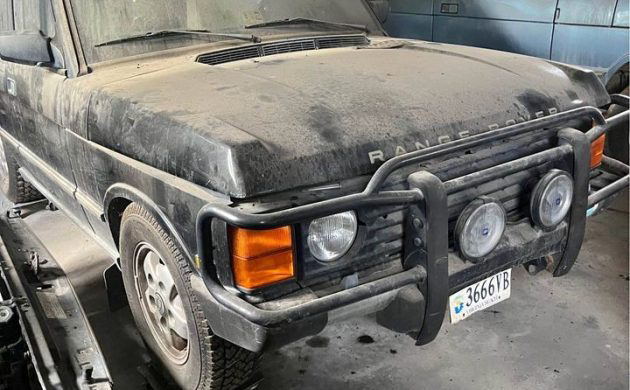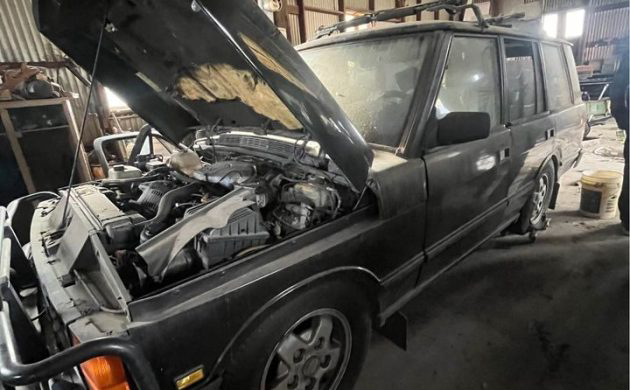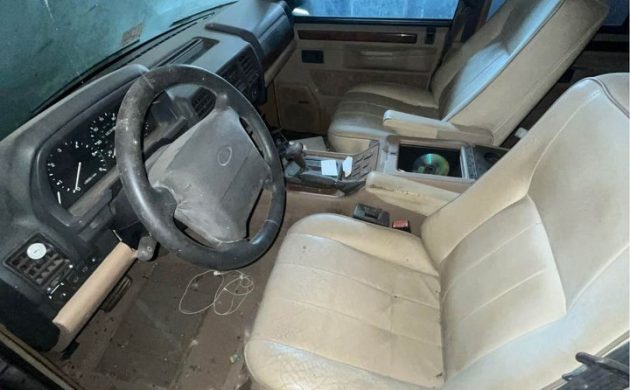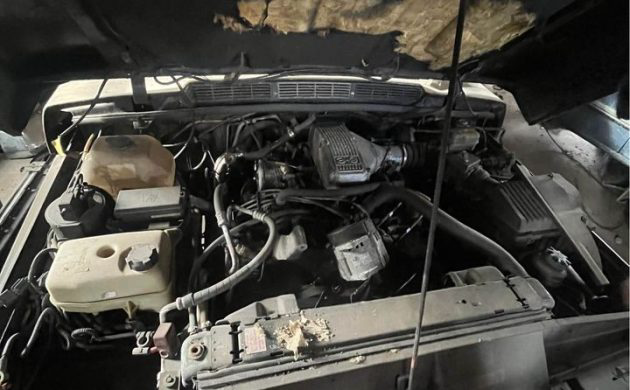Do you ever see a project vehicle and feel a rush of relief and/or regret when it reminds you of a vehicle you used to own? That’s what happens when I see this 1995 Range Rover Classic, which is – I kid you not – slightly nicer than the one I owned for a very short time a few years ago. This Range Rover was parked as a runner but one with transmission issues, which almost guarantees its value resides firmly in its future as a parts vehicle. This Range Rover Classic is listed here on Facebook Marketplace for $5,000.
The Classic generation of Britain’s most easily recognized SUV is a very black-or-white example of how condition heavily impacts values. If you own a minty Classic in either standard or long wheelbase form, you’re likely sitting on a vehicle worth $30,000 or more on a good day. If you own one in anything approaching a project, values drop significantly. The cost to restore is simply too great and there are numerous high-end systems that will need reconditioning. In the case of this Rover, you can see the factory air suspension is completely collapsed, just one challenge of many.
I will say, upon seeing these photos, I’m reminded of how charming they are, and I can recall sitting inside the basketcase I bought and thinking it would be worth the time and expense of restoring. For context, I bought my 1995 Range Rover Country LWB out of a field in Tennessee after spotting it from a moving car on the interstate doing 75 miles per hour. This should give some sense of the occasional brilliance of my decision-making skills, and the lengths I’ll go for cheap project. I’m sure the seller (who wasn’t even a “seller” until some stranger hunted him down and demanded that he sell his parts truck) was tickled that he unloaded a useless hulk from his property without even placing a free craigslist ad.
The seller’s Range Rover may look fairly tired but he seems confident it will present better once prepared for sale. According to the listing, the air suspension still works and the interior will clean up nicely once the junk is removed. The dead transmission isn’t a huge ordeal to find a replacement for, but you will have to stomach doing the work yourself or paying someone to remove the heavy transaxle and replace it with what will hopefully prove to be a known, good unit. I know I’ve had my fill of Range Rover projects; does this one tempt anyone else?








Over here these are in junkyards sagging to the ground , air bags shot, electrical problems, many in back yards, unless you can fix yourself it’s almost 200.00 per hour for a mechanic, so many are scrapped .
I had a couple of these. I got both, needing work, very cheap from dealers. Brand new parts from the dealer, plus their high labour rates absolutely made them not worth fixing. If you have access to “parts-cars”, and have the skills, these can be rewarding. There are now affordable, improved aftermarket fixes to some of the otherwise expensive problems: Arnott makes better air-springs for about $200 each, or complete kits to convert the suspension to steel springs. I paid about $3,000 for one in much better(complete, running/driving) shape than this one.
Drop a zero off the end of the price and you have a good base to start a fun off road rig but you will need to replace everything.
Elegant junk. The fact that you see these things listed in certain publications for 6 figures is laughable. The old saying, More money than brains, comes to mind.
I personally have owned two of these classics LR three and a discovery two and neither gave me a bit of trouble for well over 100,000 miles. Yes, they’re tough to maintain if you put off your maintenance until everything’s busted.
I have owned 8 Rangies over the years. My first was just like this one only it was a ’91 and dark green metallic. Every one was a wonderful vehicle for me, with 100,000s of care-free driving … that is until my current Rover, a 2010 full-size HSE, which has turned out to be a true lemon. (I also blew out a transfer case in a ’99 P38, but even that one was otherwise trouble free). If you keep up the usual maintenance, these are actually great trucks.
One of the bigest mastake GM ever made is getting rid of that engine right before the BIG gas crunch . at that time gas was between .25 cents a gal. I got 21 MPG in my Olds F-85. Buick —–215 V8 Production General Motors: 1960–1963 Rover, Land Rover and other British makers: 1967–2006
The Classic is the best Range Rover, but earlier examples have all the charm without the expensive air suspension etc.
A classic 2 door is an ideal urban limo in modern times, if you can find one.